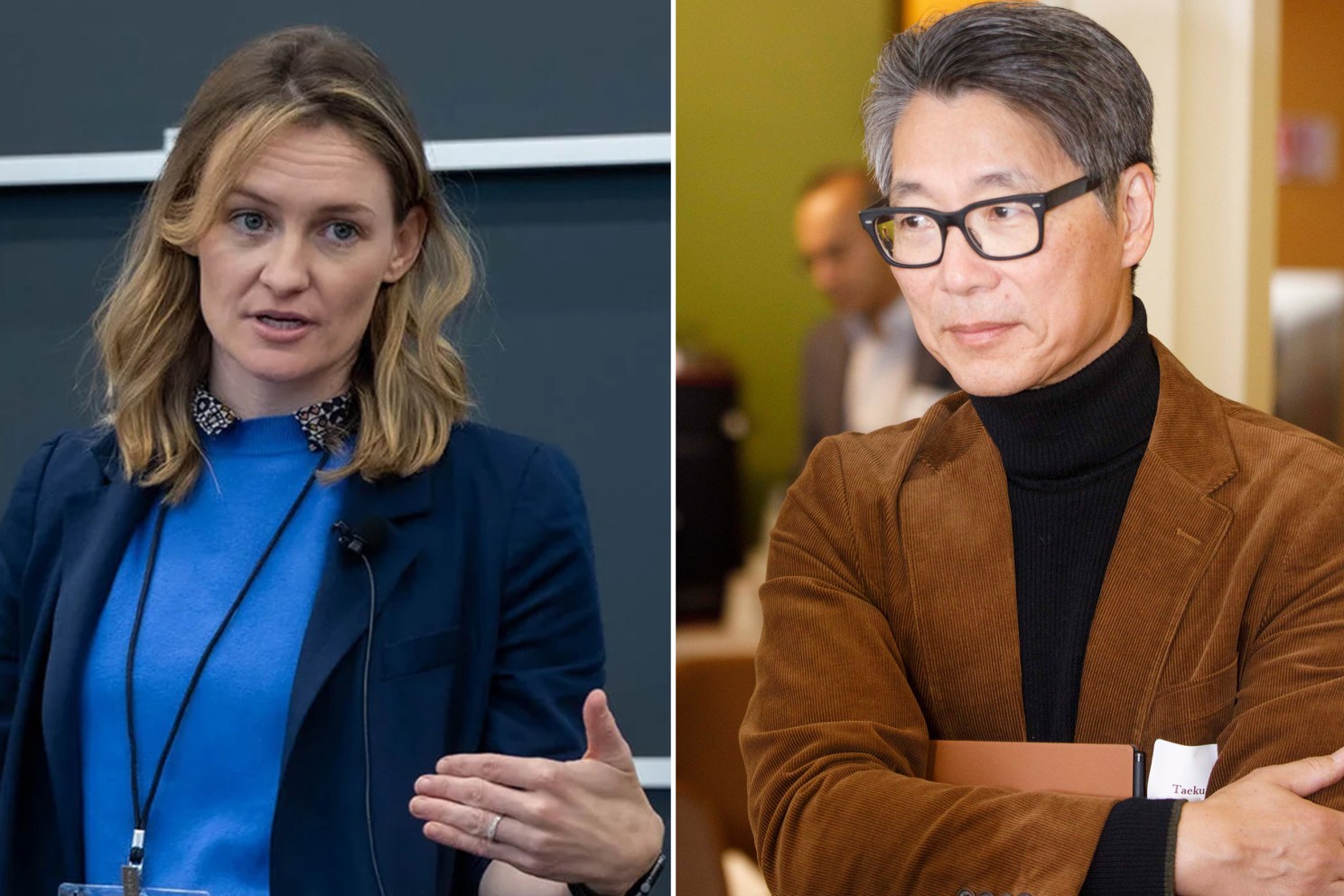Professors win Carnegie Fellowship to study polarization, advancing solidarity

The 2024 class of Andrew Carnegie Fellows includes Harvard faculty members Elizabeth McKenna and Taeku Lee.
Photos by Bethany Versoy and Kris Snibbe/Harvard Staff Photographer
Two Harvard University faculty members won the prestigious Carnegie Fellowship this week, a recognition of their work on U.S. democracy and political divisions.
The 2024 class of Andrew Carnegie Fellows includes a total of 28 scholars delving deeper into the current state of polarization — as well as possible pathways to strengthening cohesion. Taeku Lee, HKS ’90, the Bae Family Professor of Government in the Faculty of Arts and Sciences, intends to use the fellowship’s resources to further his study of diversity and democracy. Elizabeth McKenna ’08, an assistant professor of public policy at Harvard Kennedy School, will look further into the impacts of civil society on democracy.
“I am thrilled to win this award and honored to join an amazing cohort of scholars dedicated to tackling perhaps the paramount political problem of our time,” said Lee, who is also president-elect of the American Political Science Association. “What can Asian Americans tell us about political polarization and democratic backsliding in the U.S. today? Asian Americans are uniquely situated as a diagnostic population due to their exponential growth, within-group diversity, and between-group position in the U.S. racial order. In four key areas of governance — voting, education, public health, and policing — the Asian American experience pinpoints where our politics have veered away from our democratic ideals and how they can be reconciled anew.”
“Democracy is facing critical threats in the United States and around the world, and it is increasingly clear that responding to these threats by simply mobilizing people — even in large numbers — is insufficient to meet the challenges of our time,” offered McKenna, who added that she felt “so honored and grateful” to be chosen. “The fellowship will support research I’ve been doing in partnership with social movement practitioners who want to move beyond immediate reaction, organize constituencies across lines of difference, and create a political system and policies that work for the many rather than the few.”
Founded in 2015, the Andrew Carnegie Fellowship Program took a pause in 2023 as it shifted focus to polarization, which Carnegie President Dame Louise Richardson described as a driver of the frightening fragility of American democracy. “We would like to understand this polarization, what caused it, what perpetuates it, and above all, how it might be mitigated or even reversed by strengthening the forces of cohesion in our society,” Richardson said last year in announcing the new focus.
The program attracted a record 360 nominations in 2024, with the other winning proposals covering everything from social media to conspiracy theories. Each fellow will receive a stipend of $200,000, designed to free up time for research, writing, and thought exploration.




